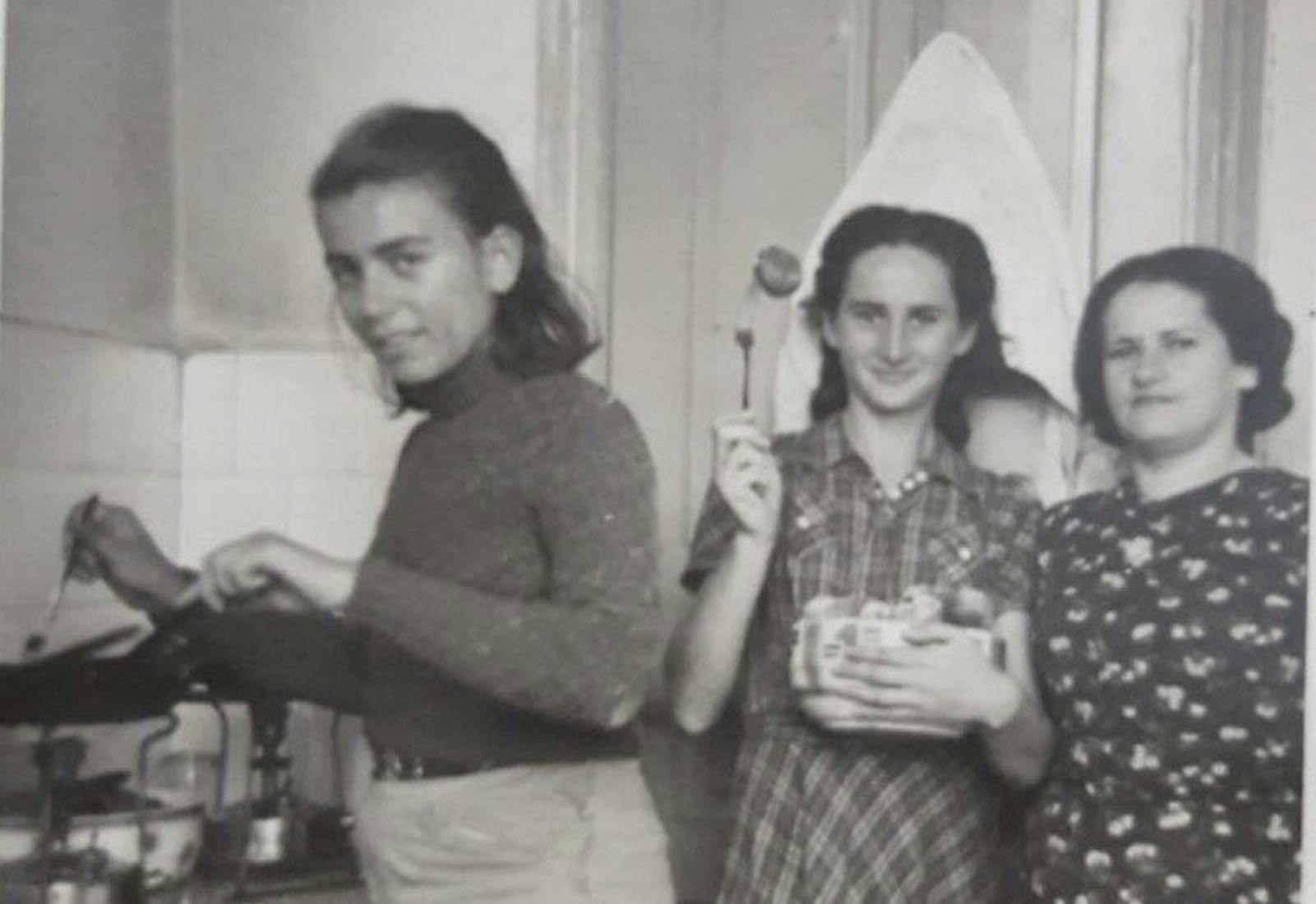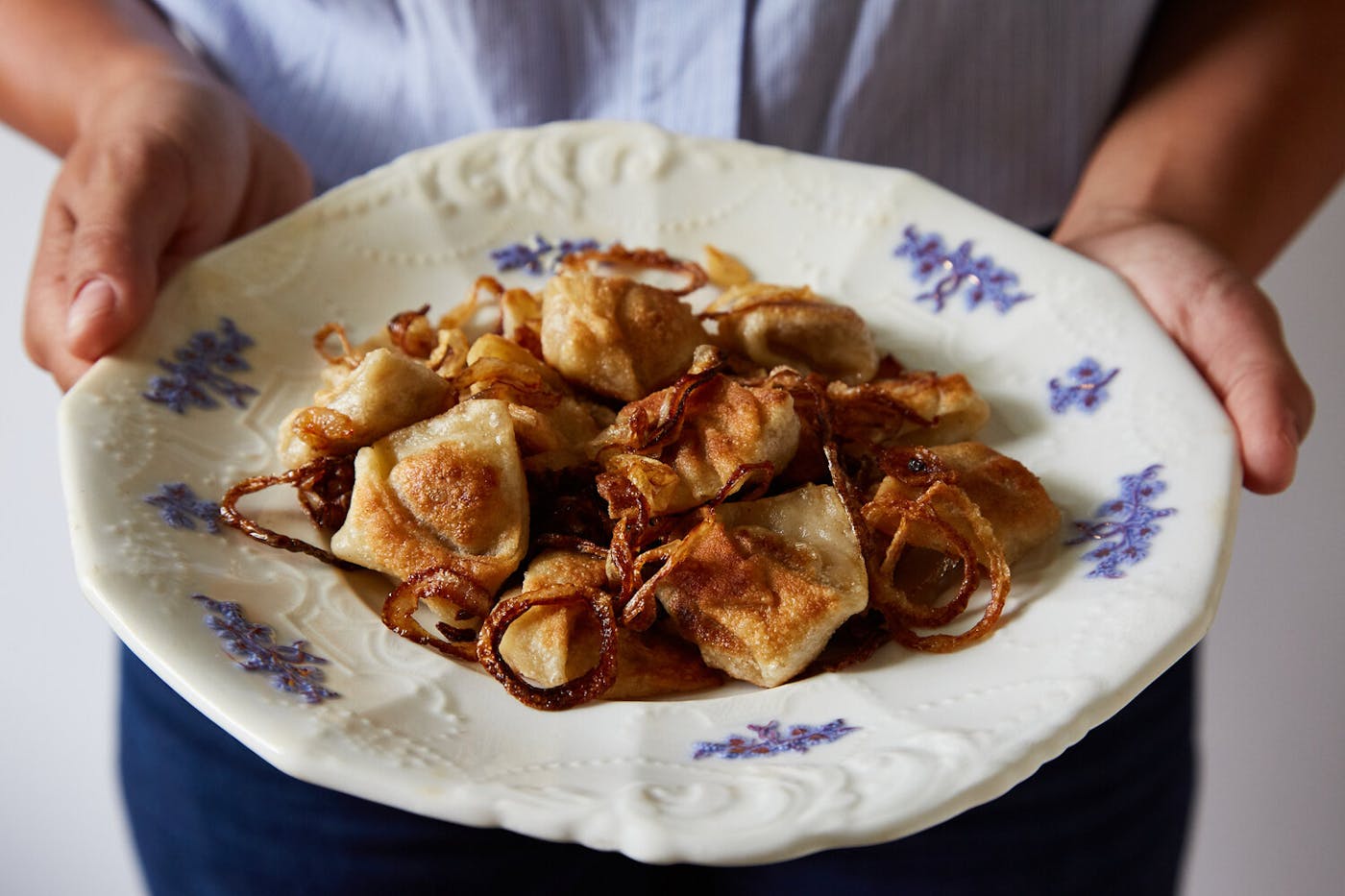Shared by Angela Josephsberg-Achsen


When we met Angela Josephsberg-Achsen in her home in Ramat Gan, just outside of Tel Aviv, we were overwhelmed by her endurance. At 93 years old, she has lived through hardship in ways that make it seem she has lived multiple lives. But she has also lived with great love. Through it all, there has been kreplach, petite dumplings filled with chicken and served in soup or fried and paired with caramelized onions, at the family table around the high holidays.
When Angela was little, her family lived in Drohobych, a town that at the time was part of Poland and today is located within Ukraine’s borders. She only has happy memories from those years, in the 1930s, she tells us. Her family had nicknamed their home “the beautiful house” and her parents slept on one side of it with her brother and she slept with her grandmother on the other. If she woke up in the night, her grandmother would pour her a glass of milk and ply her with chocolate before they went back to bed.
In 1934, her father Herman Tzvi made Aliya and sent for Angela, her brother, and her mother a year later. Angela remembers traveling to the city of Lviv and then on to a port to board a ship for Jaffa. Short on funds, her grandmother remained in Europe, but her kreplach recipe came with Angela’s mother Tzila.
Life took a radical turn in Palestine and Angela was forced to grow up quickly. The family moved from one small apartment to another, numerous times in their first years in the country. Her father, would leave for weeks at a time to work by the Dead Sea to support them. Angela remembers they were always hungry. When she once found an envelope of stamps and sold them to another child she knew, her mother sent her to the store to buy bread, cocoa, and sugar, to make Angela and her brother a treat. Even when money was tight, her mother made kreplach for the high holidays, placing each folded dumpling on a bedsheet as she made a full batch.
There were moments of tenderness, too. Her father once carried a heavy bin of water from the Dead Sea back to their home so her mother could dip her ailing elbow into it. And there were moments of joy. An outstanding athlete in high school, Angela became the national champion in track and field and competed in the competition with students from across the Middle East, where she won.
In 1947, though, tragedy struck the family. Tensions and fighting between Jews and Arabs rose in the region that year when the United Nations released its partition plan. During this time, Angela’s father was living in Baghdad, working in an oil and soap factory. On a visit home, he presented Tzila with a green purse as a gift. He insisted they go out to buy her matching shoes to celebrate. On the bus, after asking another passenger to switch seats with her so she could sit with her husband, bullets struck the bus and took Tzila’s life.
Among the memories and traditions she left behind was the family kreplach. Angela had watched her mother make the kreplach as a child, but had never made them on her own. She dug into her memory and managed to teach herself how to make the dumplings once again. She’s continued to make them for decades since, using the same meat grinder she has owned for 40 years. Today, the recipe is so beloved by her grandchildren that she jokingly hides the kreplach when they come over for Rosh Hashanah so that they won’t be devoured before the meal starts.
Like Angela, the kreplach recipe has endured.
